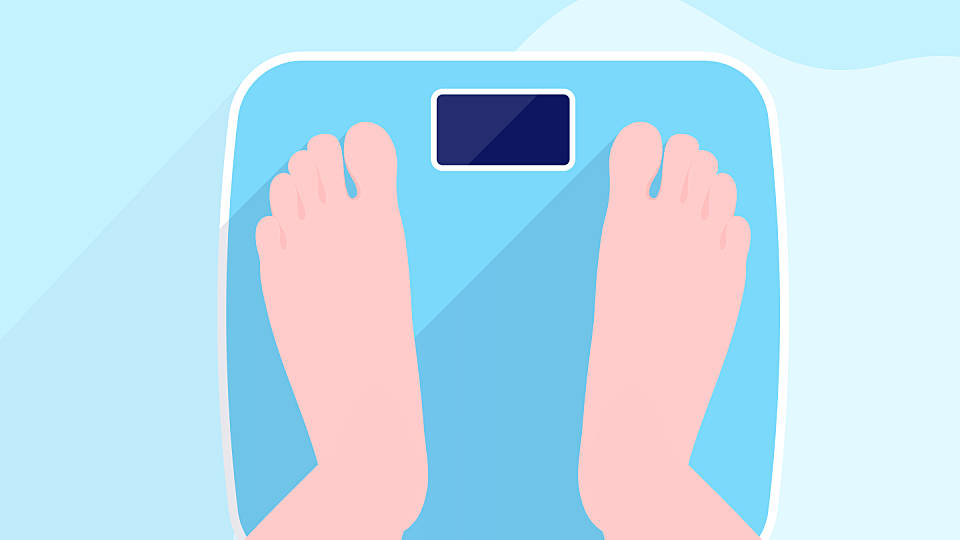How To Boost Your Fertility In Your 30s

Medically reviewed by
Dr Babak AshrafiLast reviewed: 20 Apr 2022
As you age, the chance of getting pregnant slowly decreases, whether you are a man or woman. You can boost your fertility by maintaining a healthy body weight, taking supplements, reducing alcohol consumption, quitting smoking, minimising stress, and cutting back on caffeine. You can also get a fertility test, to check your fertility levels. If you have been trying to get pregnant for over a year, you should speak to your GP.

7 ways to increase your chances of getting pregnant
If you are under the age of 40 and are having regular unprotected sex with your partner, there is an 8 out of 10 chance that you will conceive within 1 year. This chance could decrease if you are overweight, smoke, or drink alcohol. Below we look at how to increase fertility in women and men over 30.
Maintain a healthy weight

To find out if you are at a healthy weight, you can speak to your doctor or use the NHS BMI calculator. A BMI calculator checks your weight against your height and will let you know if you are underweight, at a healthy weight, overweight, or obese.
Being underweight could decrease fertility levels, as it can cause hormone imbalances. This can affect ovulation, which is when your body releases an egg ready for fertilisation. Your periods may also stop if you are underweight.
Being overweight could cause infertility problems, with several studies proving this.
If you are looking to lose weight, there are things you can do, including:
- not skipping breakfast
- eating regular smaller meals
- consuming plenty of fruit and vegetables
- being more active
- drinking lots of water (around 8 glasses a day)
- eating high fibre foods, such as oats, brown pasta and rice, whole grain bread, and peas
- reading food labels
- using a smaller plate to reduce portion sizes
- choosing lifestyle changes, not a fad diet
- reducing the amount of sugary and high fat foods you buy
- cutting down on alcohol
- planning your meals
If you have a BMI of over 30, or a BMI of over 28 and medical problems that can cause weight issues, you might be suitable for weight loss medications. Speak to one of our online doctors to find out more.
Reduce alcohol consumption

Drinking too much alcohol could come with long term health risks, such as depression, sexual problems like erectile dysfunction or premature ejaculation, and infertility. This is the same for both men and women. Adults should not be drinking more than 14 units of alcohol a week.
Alcohol use during pregnancy can also cause problems for your baby, so if you are trying to get pregnant, the NHS says the safest approach is to not drink alcohol at all. If you are concerned about the amount of alcohol you or your partner are consuming, speak to your GP. You can find out more about alcohol misuse and the next steps to take on the NHS website.
Quit smoking

Smoking is not recommended when trying to get pregnant and women should not smoke during pregnancy, as this could cause health problems for the baby. In both men and women, smoking reduces fertility levels. Quitting smoking can slowly improve your fertility levels over time, so it is best to quit as soon as you can.
In men, smoking can also cause erectile dysfunction (impotence), as it reduces the blood supply to your penis. This can make it harder for you to have sex and get pregnant. If you need erectile dysfunction treatment you can fill out a short medical questionnaire on ZAVA and one of our doctors can prescribe a suitable medication.
You can get free stop smoking advice from the NHS or by speaking to your GP. You can also attend stop smoking clinics. There is medication available that helps you to quit smoking. For more information on stopping smoking, check out our quit smoking page.
Minimise stress

Stress can affect the relationship you have with your partner, which could cause a loss of libido (sex drive). In more severe cases, stress can impact your whole body. For men, stress can make it harder to produce sperm and ejaculate. In women, it can affect periods and the ability to release eggs.
Stress can affect your appetite and increase the chances of being underweight or overweight, as people can overeat or undereat when feeling stressed. Stress can also increase the chances of drinking alcohol or smoking, which can also affect fertility.
There are things you can do to manage your stress levels, such as:
- talking to someone, whether this is a family member, friend, or a health professional
- doing more exercise
- trying calming exercises, such as deep breathing, meditation, or yoga
- planning ahead before stressful days
- seeking mental health advice from your GP
- cutting out stimulants, such as alcohol, nicotine, and caffeine
Cut back on caffeine

There is currently no evidence that suggests that caffeine intake causes fertility problems. Although caffeine cannot cause direct problems to your fertility, it could cause other problems that affect fertility, such as stress. If you consume a lot of caffeine, you might want to cut back on caffeine intake while trying to get pregnant.
Take supplements

For women trying to get pregnant, it is recommended to start taking a folic acid supplement. You should also continue taking this during pregnancy until you reach 12 weeks. You can find folic acid supplements at most large stores or over the counter at your local pharmacy. Your GP can also prescribe folic acid.
The recommended dose is 400 micrograms each day when trying to conceive. Folic acid can reduce the risk of your baby being born with a health problem, such as spina bifida (a neural tube defect).
Speak to your doctor before taking folic acid, as they may want you to take a higher dose. You are more likely to need a 5mg supplement if you have a high BMI, have other health problems, or have previously had a baby that was born with a neural tube defect.
Have regular unprotected sex with your partner

When trying to get pregnant, you should stop using protection, such as the contraceptive pill or condoms. You might want to take an STI test if you are worried about STIs and you or your partner has not taken one since before you had sex for the first time.
STIs can reduce your infertility levels and some STIs can cause health problems during pregnancy, such as chlamydia. You can get male and female home STI test kits through our online service. You can also attend a sexual health clinic or speak to your GP.
Regular sex means having sex every 2 to 3 days throughout each month. You might want to try having more sex during the time you are ovulating. You can use apps to help you find out when this is. The National Institute for Health and Care Excellence (NICE) does not recommend trying to do this though, as it could cause stress.
How long should you try before you seek help?
Usually, you should speak to your doctor if you have been trying to get pregnant for 6 months to 1 year and have not been able to. You and your partner may need to take a fertility test or check for other health problems such as polycystic ovary syndrome (PCOS).
You should also speak to a doctor if:
- you have a long term health condition and want to know more about getting pregnant in your 30s
- you are over 36, as your doctor can tell you how to increase fertility after 35
- there is a chance you could pass on a condition to your baby, such as sickle cell disease
- you take any medications and want to get pregnant, as some medications can affect pregnancy
Get a fertility test
If you want to know how to boost fertility in your 30s, a fertility test can help. There are different fertility testing kits that you can do at home, or you can speak to one of our doctors to find out which is the best test for you. You can get your results in a few days, with helpful advice on the next steps to take.
You can find more about our female fertility testing kits here. Your partner should also get fertility tests, to check he does not have any issues which could make it harder to get pregnant. The 4 main tests we can offer are:
- PCOS test, to check if you have PCOS as this can affect the release of your eggs
- progesterone test, which can check if you released an egg during your menstrual cycle
- pituitary hormones test, to check if your ovaries are working as they should and if you are releasing hormones that are required for fertility
- anti-mullerian hormone (AMH) test, which can check whether the number of eggs you have is normal for your age
Depending on the results of these tests, our doctors might recommend further tests or refer you to a fertility clinic, where you can get help with conceiving a baby.
from £69.00
from £35.00
from £105.00

No results found.
Please check your spelling or try another treatment name.

Dr Babak Ashrafi Clinical Lead for Service Expansion
Accreditations: BSc, MBBS, MRCGP (2008)
Babak studied medicine at King’s College London and graduated in 2003, having also gained a bachelor’s degree in Physiology during his time there. He completed his general practice (GP) training in East London, where he worked for a number of years as a partner at a large inner-city GP practice. He completed the Royal College of GPs membership exam in 2007.
Meet our doctorsLast reviewed: 20 Apr 2022
-
Alcohol misuse (2018) NHS (accessed 08 April 2022)
-
BMI healthy weight calculator (2018) NHS (accessed 08 April 2022)
-
Erectile dysfunction (impotence) (2020) NHS (accessed 08 April 2022)
-
How long does it usually take to get pregnant? (2018) NHS (accessed 08 April 2022)
-
Impact of obesity on infertility in women (2015) PubMed (accessed 08 April 2022)











